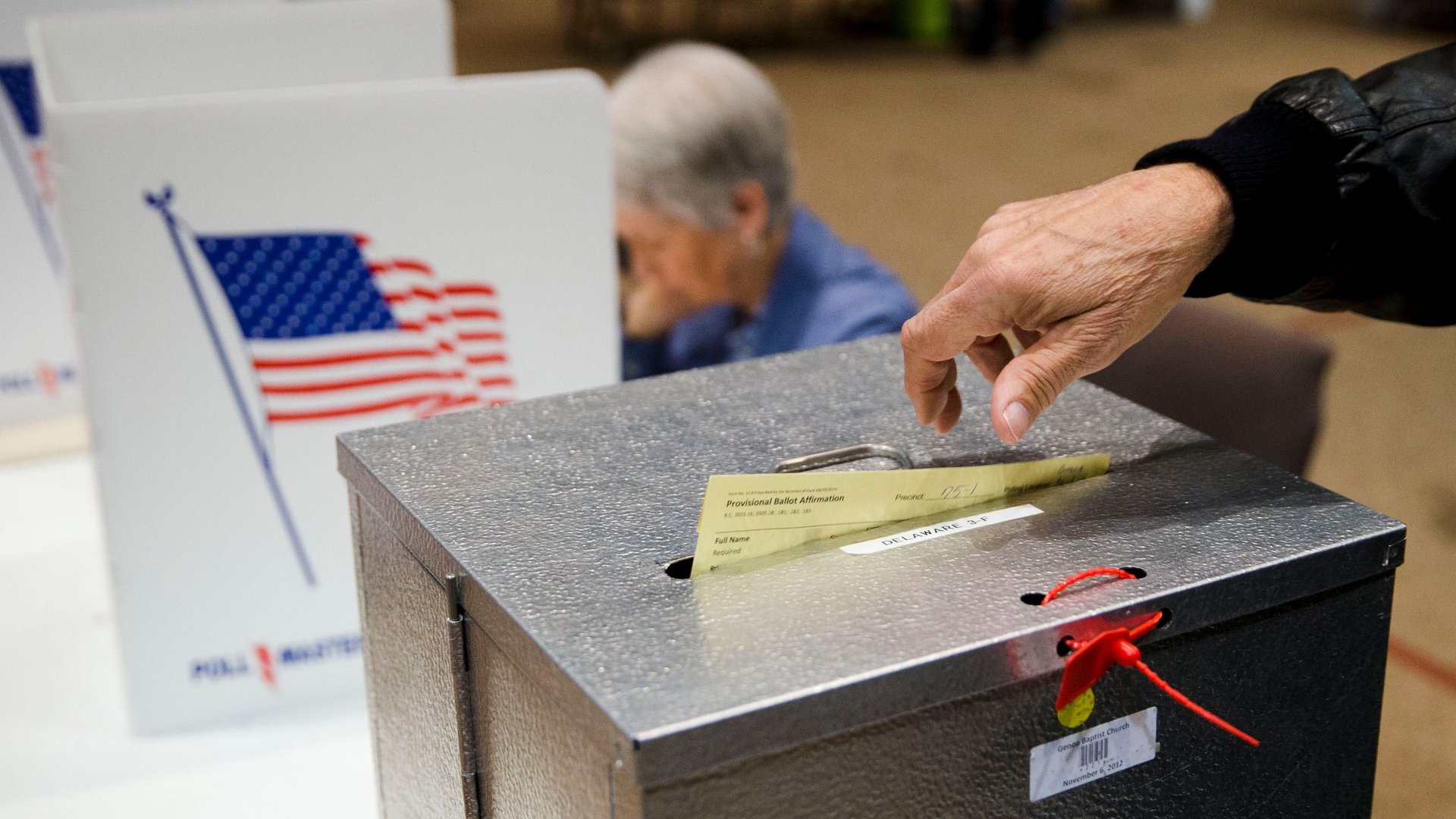Denver is trying out a blockchain voting app
Wouldn’t it be nice to vote using your iPhone instead of waiting in line or fiddling with absentee forms? The city of Denver, Colorado announced yesterday that it will run a pilot for smartphone voting. The plan is to allow overseas voters, active military members, and eligible dependents to cast ballots for May 2019 municipal elections using Voatz, a mobile app that uses blockchain technology.


Wouldn’t it be nice to vote using your iPhone instead of waiting in line or fiddling with absentee forms? The city of Denver, Colorado announced yesterday that it will run a pilot for smartphone voting. The plan is to allow overseas voters, active military members, and eligible dependents to cast ballots for May 2019 municipal elections using Voatz, a mobile app that uses blockchain technology.
Bradley Tusk, ex-campaign manager for Michael Bloomberg, is funding the Colorado project—estimated at $180,000—so the pilot won’t cost anything for the city. He did something similar in West Virginia last year, in which 144 voters used Voatz in midterm elections.
Sheila Nix, president of Tusk Philanthropies, said mobile voting could increase turnout in primary elections, which would reduce the political polarization that often marks these contests. It could also give disabled citizens better access to the polls and encourage younger voters to fulfill their civic duties.
Tusk’s foundation is not beholden to any specific technology, Nix said, but considers Voatz a big upgrade over emailed ballots—the current option for many overseas voters. Indeed, for voter identification, Voatz requires a multi-step process, which includes fingerprint authentication, video selfies, and scans of official IDs. That’s more robust than logging into email and sending a PDF.
However, security experts and election researchers have expressed concerns. “We’re entrusting a startup with one of the most central, important functions of government—free and fair elections,” noted John Feminella, a technical advisor to software firm Pivotal. “We should accordingly have very high expectations and transparency about how they’re organized and financed. But we don’t.”
Although Tusk Philanthropies hired Andre McGregor, a veteran FBI cyber special agent and partner at ShiftState Security, to review Voatz, the Boston-based company has not released its source code for public scrutiny.
“Smartphone-plus-blockchain technologies bring stronger security capabilities to the market—much stronger than email ballots,” McGregor said via email. But, he added, “let’s remember that all technologies are vulnerable to compromise, whether it is through system exploitation or human error.”